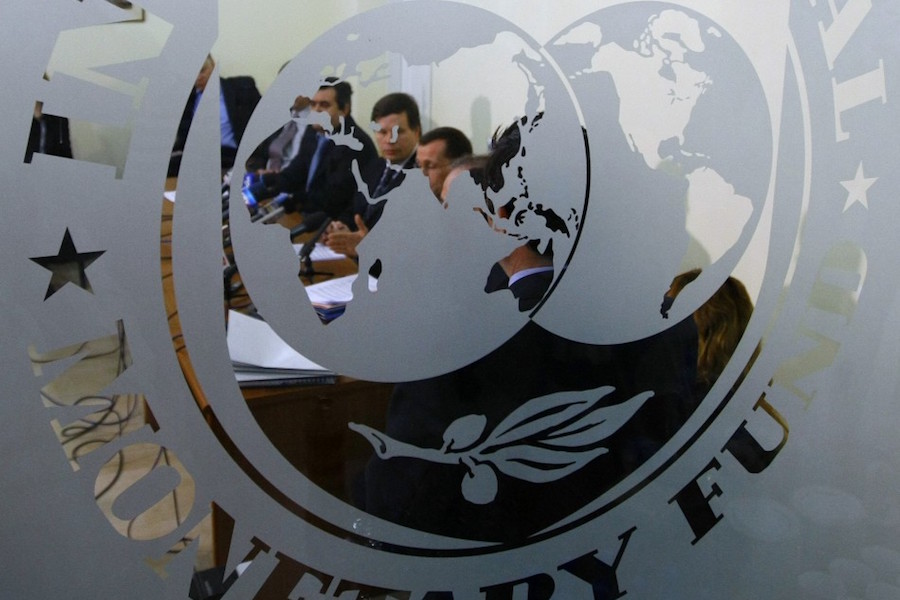On 25 September 2015, the United Nations General Assembly adopted the Sustainable Development Goals (SDGs), an ambitious policy agenda that aims to eradicate poverty, in all its forms and dimensions, by 2030.
Achieving the 17 goals and 169 targets contained within the agenda will undoubtedly depend on fruitful collaboration between a host of international organizations and donors—as recognized by Goal 17, which calls for a strengthening of global partnership. Indeed, such organizations—ranging from the World Bank to the Caribbean Development Bank, and from the multi-billion US Agency for International Development to the modestly-endowed Icelandic International Development Agency—form an increasingly heterogeneous group operating in developing countries.
Among these organizations, some stand out due to the pool of resources they command and the leadership role they exercise in the global economic system. Quite possibly the most important such actor is the International Monetary Fund (IMF). The organization provides financial assistance and technical support to countries in economic trouble—often through its infamous ‘structural adjustment programmes.’ In this capacity, the IMF has mandated an ensemble of policy reforms—so-called ‘conditionalities’—that borrowing countries undertake to obtain access to financing.
A less recognized—yet increasingly important—aspect of IMF activity, however, is its ability to influence the fortunes of borrowing countries by providing its ‘stamp of approval’. A country’s participation in IMF programmes signals policy credibility to outside observers. This signalling effect is especially pronounced for foreign aid donors, who trail the IMF by stepping-up financial support to countries undergoing economic restructuring. Consequently, the promise of additional aid that the IMF’s stamp of approval yields can provide ex ante justification for extensive conditionalities.
The recent experience of Ukraine provides a case in point. In April of 2014, acting president Oleksander Turchinov and prime minister Arsenii Yatseniuk wrote to the IMF to request a $17bn loan to support ‘ambitious reforms’ that spanned fiscal issues, banking supervision, privatizations, energy policy, and ‘improvements in governance and the business environment’. The IMF’s decision to lend was reported to unlock billions in aid from foreign donors, including the United States, Canada, Japan, many European countries, and the World Bank.
But a key question has been overlooked in this story: Does the IMF’s signalling effect vary for different donor countries? This matters because it offers valuable insights into how powerful actors may exert and extend their influence in developing countries. The US Agency for International Development and the UK Department for International Development, for instance, cannot mandate central bank independence or economic deregulation (even if they consider these policies worthwhile). But the IMF can. And since the IMF’s governance structure is biased in favour of a select few high-income countries that hold most voting rights, they can also exercise the most influence over organizational decision-making. Thus, if donors wielding most power in the IMF are also those following IMF signals of policy credibility, this would bolster evidence of the IMF acting as a broker for the interests of powerful high-income countries.
Our work, supported by the Institute for New Economic Thinking, explored this hypothesis. Controlling for confounding social, political, and economic factors, we found that signalling effects were stronger for donor countries with larger voting shares in the IMF, but weaker or non-existent among donor countries with fewer voting shares. For example, the United States—the largest IMF shareholder with almost 18% of voting shares—increased aid commitments by over 29% when a recipient country was participating in an IMF programme. Donors with less IMF influence, such as Austria and Norway, maintained equivalent levels of aid commitments regardless of recipient country participation in an IMF programme.
These findings have potentially far-reaching implications for the achievement of the SDGs. If major advances are to be made, it is clear that the complex links between powerful states, international organizations, and the politics of aid must be considered. The idea behind the SDGs’ intended ‘development partnership’ suggests that developing countries are to be accorded voice and influence over the aid allocation process. Instead, our work suggests that the aid field remains a primarily closed system where the IMF acts as a gatekeeper for unlocking billions of funds from its largest donors, themselves guiding the IMF’s policy advice.
For further information see: Stubbs, T. H., A. Kentikelenis, and L. P. King. 2016. “Catalyzing Aid? the IMF and Donor Behavior in Aid Allocation.” World Development 78:511–28.






